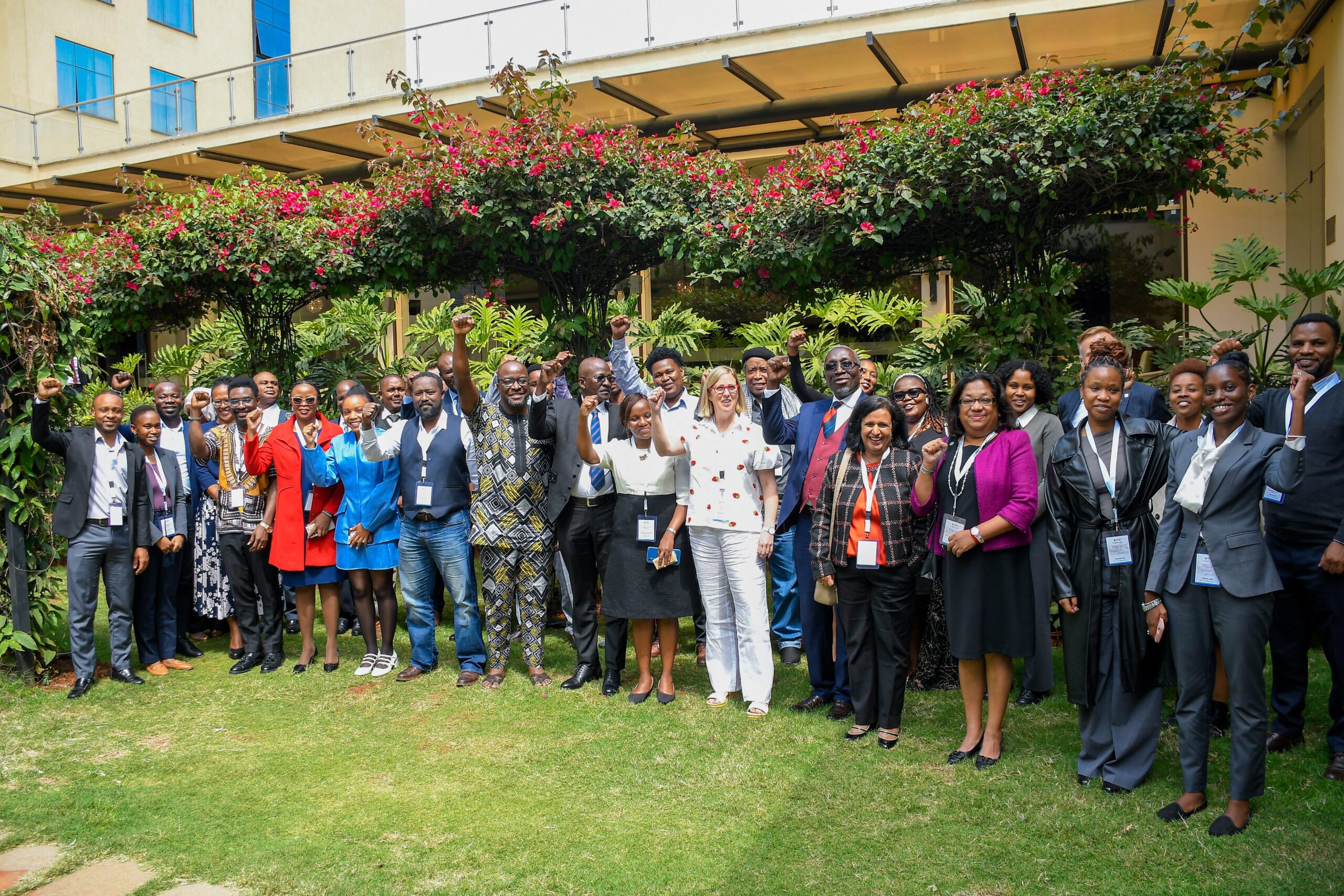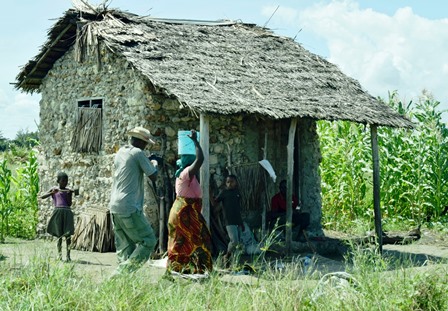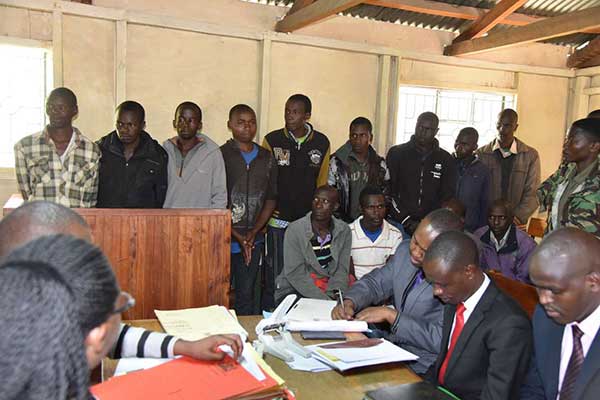The discovery of oil, gas, huge water aquifers, titanium, coal, and many other natural resources was received with optimism because of the potential to boost Kenya’s socio-economic development, if well managed.However, many potential obstacles have plagued resource-rich countries before, such as weak institutions, inadequate macroeconomic policies, poor governance and lack of benefit-sharing policies and mechanisms among the relevant stakeholders i.e. local communities, national government, county governments, and private sector investors. This has often derailed the use of these resources to improve the lives, of those in the respective regions as well as the country as a whole.
The Kenyan Section of the International Commission of Jurist (ICJ Kenya) has been implementing a project titled ‘Building Demand for Responsive Government through Citizen Centered Action in Extractive Governance.’ In order to achieve the objectives under the project, ICJ Kenya has undertaken a series of the initial inception meetings that have targeted duty bearers, community members, civil society groups and key stakeholders in the Extractive industry. The aim of the inception meetings was to introduce the objectives of the project and obtain buy-in from duty bearers and rights holders and in particular, the communities and citizenry.
On 1st August, ICJ Kenya held a meeting with the Council of Governors (COG). The substance of the discussions centered on the proposed policy labs as envisaged in the project. A key output was the suggestion to ensure the conversations at the policy lab aligned with the outcomes of the Governors’ Malindi meeting. To inform the content of the consultative meetings, the report of the Malindi meeting would be availed to ICJ Kenya. The Council of Governors Secretariat would assist in mobilizing the Governors for the meetings.
Subsequently and during the period under review, ICJ Kenya held a further inception Meeting with Kenya Private Sector Alliance (KEPSA) and met with Rachel Muthoga the Deputy Director of KEPSA who represented the management team at KEPSA. The meeting introduced the project and explored areas of partnership. The meeting concluded that KEPSA would contribute to the project by convening its members in the Extractives industry such as the Chamber of Mines and Petroleum Institute of East Africa for purposes of popularizing the Proactive Disclosure Guidelines.
The first in a series of community and civil society inception and sensitization meetings were held in Kwale County on 9th to 10th August 2018 where ICJ Kenya introduced the objectives of the project. From the meetings, the citizenry, community-based organizations expressed goodwill to work with ICJ Kenya. A further meeting was held with the County Secretary of Kwale-Martin Mwaro who confirmed that Kwale County would participate at the policy labs once convened by ICJ Kenya.
The second in the series of the Inception meeting was held in Taita Taveta County on 12th and 13th August 2018. These forums were held in Kasigau and Chunga Unga areas. The meetings coincided with the mining week organized by AHADI in partnership with the County government. The Deputy Governor Ms. Majala Mlagui was present during the forums. She expressed goodwill in working with ICJ Kenya and the key immediate outcome was that Ms. Mlagui would begin the process of constituting a County mining working group whose membership would constitute representatives from the County Assembly and County Executive Committee (CEC) and civil society.
The third in series of the inception and community dialogue meetings held in Lokichar, Turkana County. The community members in attendance expressed anger on the ongoing oil exploration and drilling, most notable being a call for enactment of legislative frameworks such as the Petroleum Bill in order to enable them to engage with emerging Extractive related issues and disputes.
Media advocacy activities were successfully conducted in the three counties they include; radio talk shows that engaged the public in a discussion in both public and local languages, they include; Ekeyokon F.M in Turkana County on 21st August 2018, Anguo F.M in Taita Taveta County on 24th August 2018, and Radio Kaya in Kwale County, on 23rd August 2018.
ICJ Kenya also conducted successfully in 3 counties (Kwale, Taita Taveta and Turkana) the community public debates which invigorated the debate around Extractives bringing out the current situation, challenges and proposed recommendations from the community members.
ICJ Kenya also conducted successfully in 3 counties (Kwale, Taita Taveta and Turkana) the sensitization forums which were eye-opening, enhanced the awareness of community members on the benefits and challenges of the extractive sector and how to take part in the governance of extractives, therefore maximizing on the gains.
During the duration of the project, ICJ-Kenya finalized the development of the Knowledge Products. These include the Citizen’s Access to Information Advocacy Guide on Extractives; Information Request Tool intended to empower communities to demand information, civil society Fact Sheet on legislative and policy frameworks covering Extractive governance in Kenya and the Proactive Disclosure guidelines for multinational corporations.
Extractives contribution to GDP
Kenya’s Extractives sector currently contributes approximately three percent of the total export revenues and one percent of Gross Domestic Product (GDP). This contribution is, however, estimated to grow to as much as 10 percent of GDP after 2020.
The lack of access to information deprives the community of their rights to fully benefit from the ongoing Extractive activities. It is crucial that Kenya figures out how to encourage the participation of Kenyans in the Extractives sector through access to information.
There was a realization that without proper and adequate information the public lacks the capability of demanding accountability from the national and county government. The participants in the meetings were drawn from different parts of their counties to represent the critical mass in the Extractives sector. The participants were trained in the law in relation to access to information and how to utilize the tool.
This empowering of citizenry contributes to promoting good governance and building demand for the responsive government through a citizen-centered action in Extractive governance.
During, the one-month community engagement we (ICJ Kenya) also involved the media through talk shows. ICJ-Kenya conducted successful radio campaigns through the development of radio campaign content in Kwale, Taita Taveta, and Turkana Counties. The communities got a chance to ask questions directly from our team.
Challenges
Despite the difference in the Extractives mined in the different counties, the challenges experienced we more or less the same. During the forums, the participants complained of the same issues. The most rampant ones were land issues and lack of access to information on Extractives and the mining law 2016. Others include:
• Insecurity issues
• Sexual harassment in mining areas
• Political interference by local leaders
• Environmental degradation
• Lack of permits/ licenses for mining
• Lack of necessary machinery for mining
• Harassment by investors
• Displacement of people from their homes.










